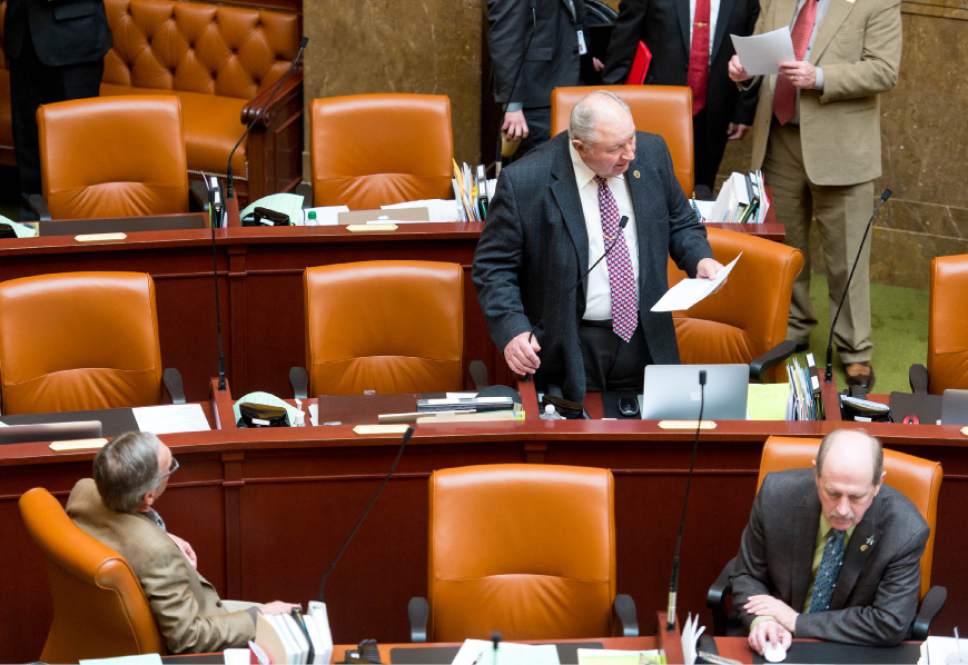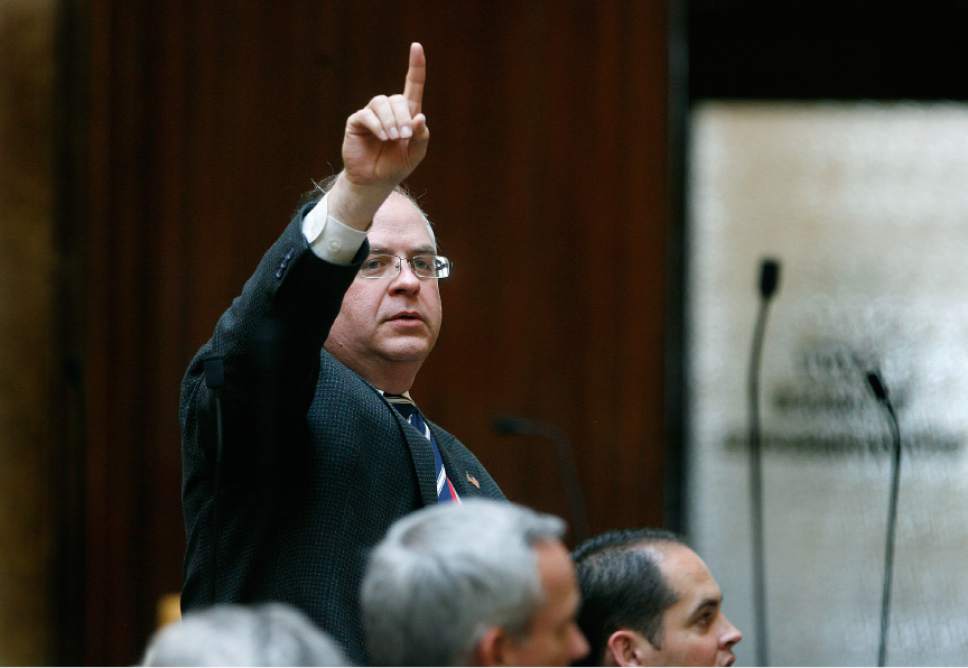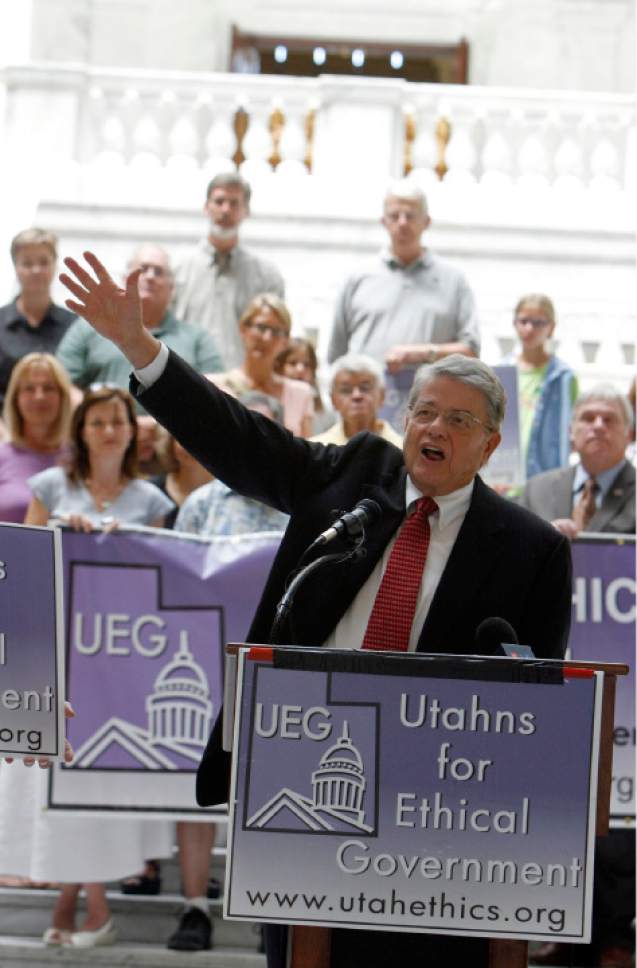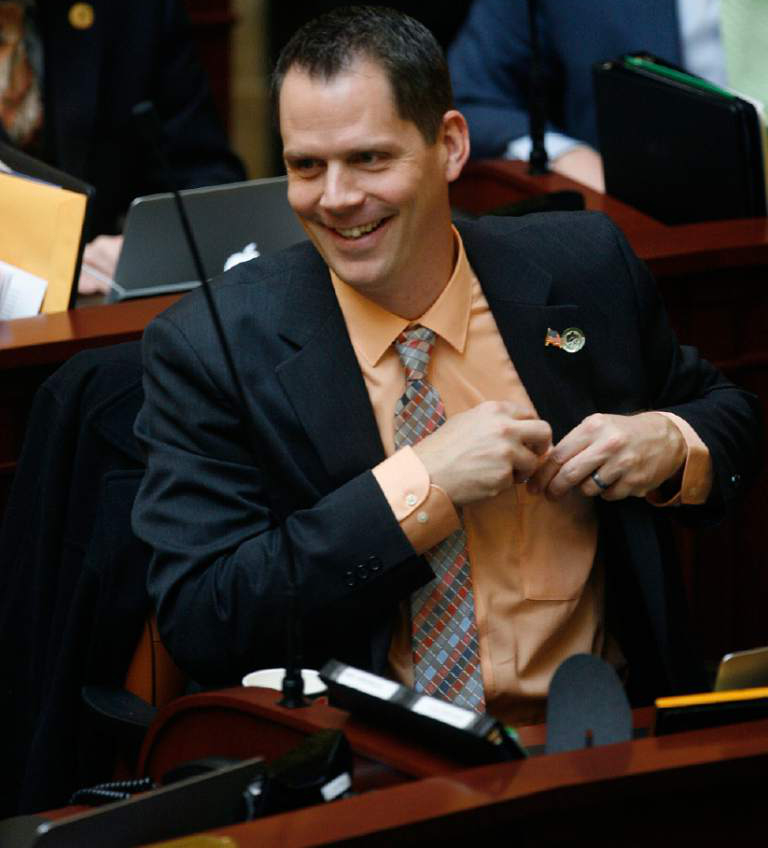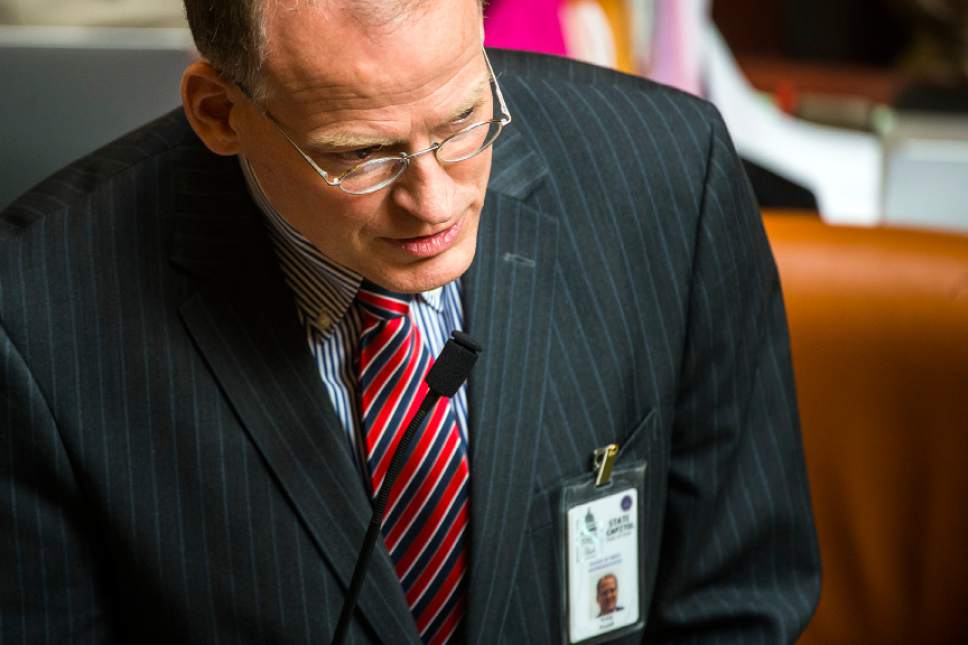This is an archived article that was published on sltrib.com in 2016, and information in the article may be outdated. It is provided only for personal research purposes and may not be reprinted.
Since 2015 was not an election year for them, Utah legislators didn't need to spend much money on campaigning.
But that didn't slow their election fundraising — they amassed $1.54 million.
Special-interest groups provided about 94 percent of that haul, and many lawmakers say much of it was unsolicited — simply handed over by groups that liked their stands.
Meanwhile, less than 1 percent of the total came from constituents who lived in the districts of the lawmaker to whom they donated, according to a Salt Lake Tribune analysis of 2015 disclosure forms.
That again raises questions of what special interests receive for that money, coming as the Legislature prepares to convene Monday.
—
Ethics • "It's a terrible indictment of the current system that so much of the financial support comes from special interests," said Kim Burningham, a former member of the Legislature and past chairman of Utahns for Ethical Government.
"Until they change that, people will continue to be beholden to special interests and not the people they represent," he said. "I think it's impossible if someone is giving a lot of money to at least not listen to their arguments — and, by doing that, give some preference over other sides they may not hear."
Senate Majority Leader Ralph Okerlund, R-Monroe, said his own experience is different. He said he does not mentally check during debates what any donor may want, and he doesn't even have a good idea of who all his contributors are.
"I try to get information from all sides interested in an issue," he said. "I don't call someone because they have donated; I call because they may have some expertise."
Campaigns, he added, are becoming more expensive, which leads many to start raising money sooner.
"It's a necessary part of campaigning. We have to raise funds, especially this year when gathering signatures" has become a potentially expensive option to qualify for the primary ballot, besides trying to win delegate support at conventions.
Rep. Kraig Powell, R-Heber City, is among a handful of lawmakers who refuse to accept special-interest money.
"I frequently discuss legislation with lobbyists because they are some of the most educated and helpful on the issues," Powell said. "But what has always seemed unexplainable and unjustified is those groups then offer money to policymakers that they are trying to influence."
EnergySolutions, the nation's largest nuclear waste company, headquartered in Salt Lake City, was the single largest donor to state lawmakers. When asked for comment, the business didn't explain why it gave a combined $73,245 to 44 lawmakers (out of 104 possible) — but did explain its process of choosing whom to support.
"All political donations made by EnergySolutions are processed through our government-relations department and Senior Vice President Casey Hill," said company spokesman Mark Walker.
"It is our policy not to solicit for donations, and all political contributions are made after a request from the candidate is formally submitted. Party lines and policy play no role in determining whether or not a contribution is made, and we are very proud of our bipartisan donation record."
The company gave to 42 Republicans and two Democrats. But it also donated to political-action committees that raise money for incumbents in both parties.
—
Totals • Tribune analysis of financial-disclosure reports found that $1.44 million of the $1.54 million raised by legislators last year came from special-interest groups — 93.6 percent.
Meanwhile, just 0.7 percent of the total came from constituents living in a member's district. Another 3 percent came from individuals donating to someone besides their own lawmaker, and 2.7 percent came from legislators who gave money to their own campaigns.
Legislative leaders mustered the most money.
The list of top recipients includes: House Speaker Greg Hughes, $135,929 (including money given to his leadership PAC); Senate President Wayne Niederhauser, $104,900; House Majority Leader Jim Dunnigan, $85,450; Sen. Stuart Adams, R-Layton, $55,153; Okerlund, $49,150; and House Majority Whip Francis Gibson, $45,100.
—
Donors • Some of the top donors — besides EnergySolutions — include: Comcast, $36,850; Altria (a tobacco company), $35,000; SelectHealth, $28,200; Premier Access Insurance, $27,750; Utah Credit Union PAC, $26,000; IM Flash Technologies, $25,500; PacifiCorp, $25,400; and the Utah Association of Realtors, $23,250.
Some industries gave far more than others.
The health-care industry donated at least $228,747; insurance industry, $128,720; waste industry, $77,945; lobbyists, $75,904; telecommunications, $54,725; pharmaceutical companies, $54,150; law firms, $53,375; and education groups, $50,681.
The tobacco industry gave $45,600 and the beer industry $18,150 to a Legislature in which about 80 percent of members are Mormon, which preaches against tobacco and alcohol use.
The payday-loan industry also gave $37,500. Such high-interest loan companies were tied to scandals that toppled former Utah Attorney General John Swallow. They had quietly funneled hundreds of thousands of dollars to him to use against an opponent (current Attorney General Sean Reyes) and against Rep. Brad Daw, who had run legislation they disliked.
—
Spending • So what did lawmakers do with all the money they raised in an off year? They spent most of it — $1.12 million out of $1.54 million.
But much of the money didn't go to the traditional polling, organizing or ads that one might expect from campaigns. For example, they gave away tens of thousands of dollars.
They donated at least $89,469 to local charities from the Boy Scouts to school bands, homeless shelters and veterans groups. Of course, that helps to build goodwill, always a plus for a politician.
They also donated at least $89,641 to other politicians and party groups. That helps some run for leadership positions and could help others cement relationships with important allies.
Reps. Kay Christofferson, R-Lehi, and Mike Noel, R-Kanab, gave money to San Juan County Commissioner Phil Lyman to help fight his legal charges for leading a protest ride into a canyon with protected archaeological sites. Noel gave $500 from his campaign, and Christofferson chipped in $250.
Lawmakers also spent more than $11,000 total on gifts, mostly for interns, campaign volunteers and legislative staff. But some went for wedding gifts or flags for Eagle Scouts.
Rep. Mike McKell, R-Spanish Fork, reported spending $512 at Sam's Club for "delegate Christmas gifts."Party delegates, of course, help pick party nominees for legislative races.
Some paid back loans they had made to their campaigns, putting some money back into their own wallets. Senate President Niederhauser, R-Sandy, paid himself nearly $17,500, and Rep. Doug Sagers, R-Tooele, paid himself back $4,500.
In the off year, legislators also spent a combined total of nearly $60,000 on food — often for meals while traveling, or on food for volunteers and constituents with whom they met.
—
Personal benefit? • State law generally bans using campaign funds for personal use. But that has a caveat: What looks like a personal expense may be allowed if done with a political purpose to help a campaign or to fulfill officeholder duties.
Legislators reported some spending that may have approached that line, including:
• Rep. Fred Cox, R-West Valley City, spent $30 in campaign funds to pay for his National Rifle Association membership. Rep. David Lifferth, R-Eagle Mountain, reported spending $26.70 for a federal firearms license fee, needed to deal in guns or ammunition.
• Four lawmakers spent a total of $4,850 to buy guns. Sens. Stuart Adams, Mel Brown and Jerry Stevenson and Rep. Curt Oda used campaign money to buy commemorative legislative guns from the Utah Gun Safety Alliance.
• Rep. Brad Dee, R-Ogden, used $110 in campaign funds to obtain a passport.
• Five legislators spent a combined total of $450 in campaign funds for tolls on Interstate 15 express lanes: Sens. Margaret Dayton and Deidre Henderson, and Reps. McKell, Christofferson and Jake Anderegg.
Rep. Sue Duckworth, D-Magna, used $14 in campaign money for a car wash, and Lifferth spent $16 on one.
• Some spent money on entertainment for themselves and others. Anderegg, R-Lehi, spent $30 on "tickets for constituents for Star Wars."
Lifferth spent $29 on "bowling for constituents." He also spent $105 for "movie tickets and popcorn" at the Thanksgiving Point Megaplex and $320 for classes at the soon-to-close, conservative George Wythe University.
Rep. Mel Brown, R-Coalville, reported spending $168 for Utah Symphony tickets. Sen. Margaret Dayton, R-Orem, reported spending $500 at Megaplex theaters for a "holiday campaign event."
• Some campaign money went to clothes. Mel Brown spent $152 at J.C. Penney on "shirts for session." Four others — Reps. Steve Handy, Paul Ray, Lee Perry and Lifferth — used campaign funds to buy shirts with the House logo from the Legislature's "Third House" (a fund for social events and food).
Some reported spending campaign money for dry cleaning — Mel Brown spent more than $300 on "suit cleaning for session," Lifferth spent $55 and Sen. Kevin Van Tassell, R-Vernal, spent $83.
• Sen. Karen Mayne, D-West Valley City, paid $5,100 to lobbyist David Spatafore as a "legislative consultant." "He helps me with research on issues, and he helps with my campaign," she said, adding that he is a longtime friend and adviser.
Spatafore is a registered lobbyist with 23 clients, including Holladay, Midvale, South Jordan, West Valley City, an electricians union, and the Utah Chiefs of Police and Utah Fire Chiefs associations. He donated $1,125 to six lawmakers last year, all Republicans.
• Legislators also used campaign contributions for a variety of international fact-finding trips, including to China, Tanzania and Switzerland.
Anderegg, for example, used at least $1,630 to pay his expenses on a trip to Switzerland that was controversial for others. That trip led to criticism of Utah Transit Authority officials who participated without disclosing it beforehand to the agency or public.
Legislature primer
See a breakdown of the 2016 Legislature, along with a roster of lawmakers. › A12


